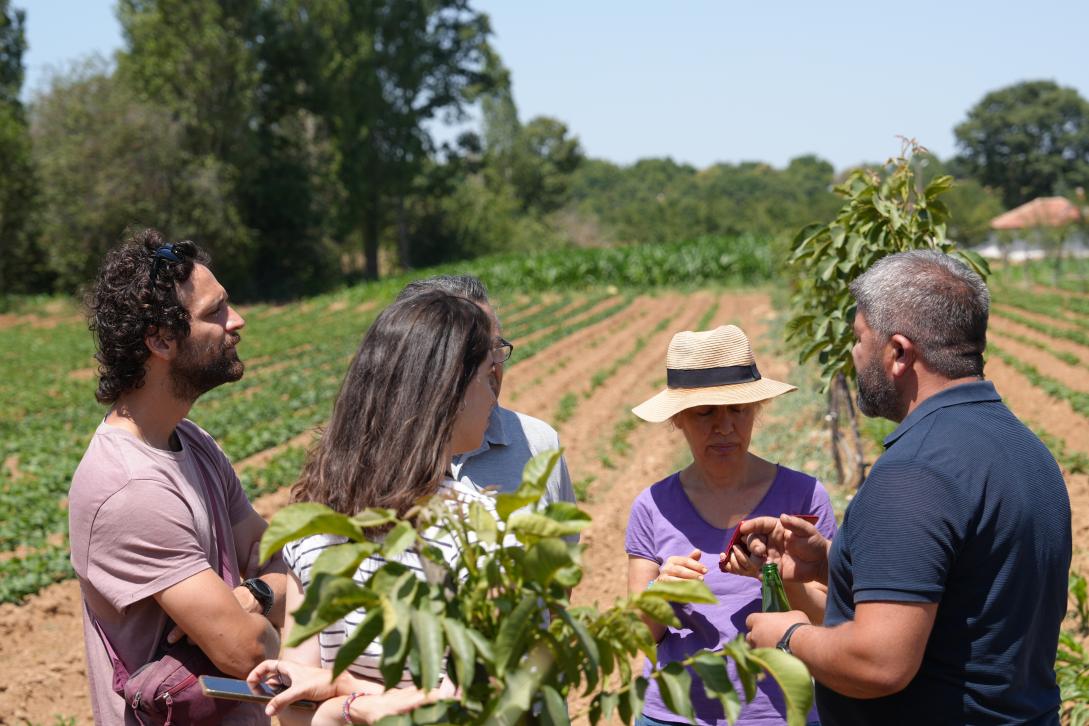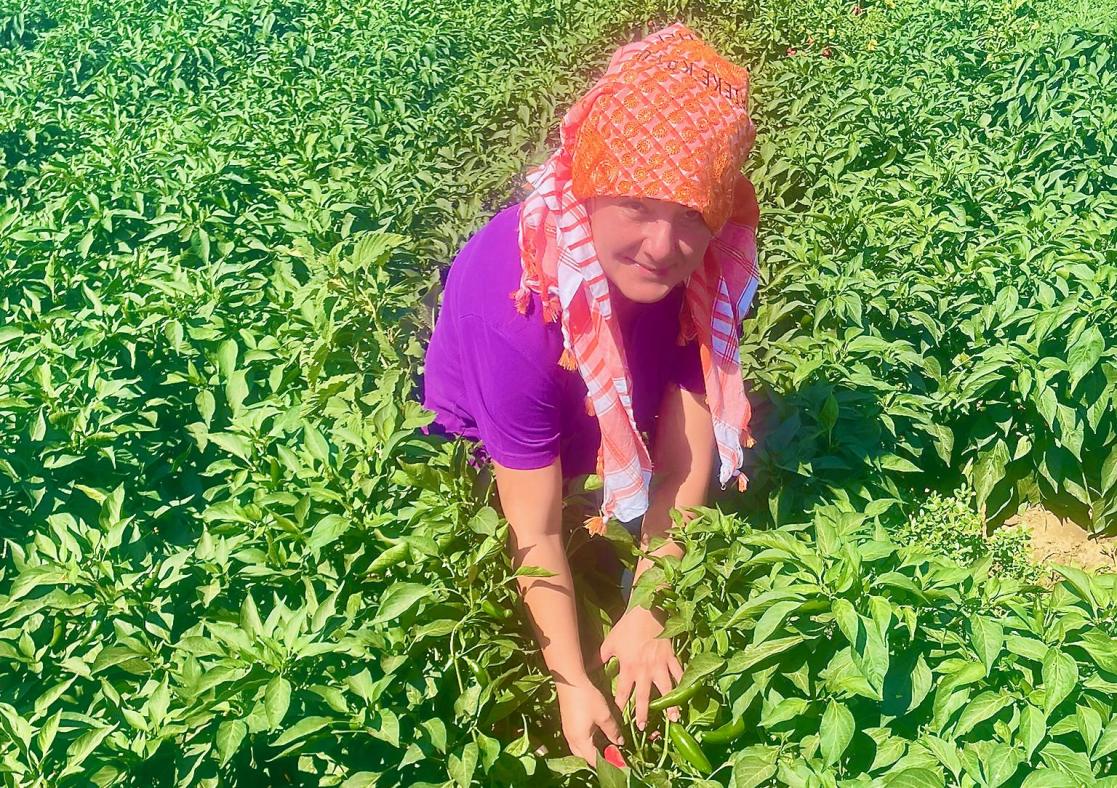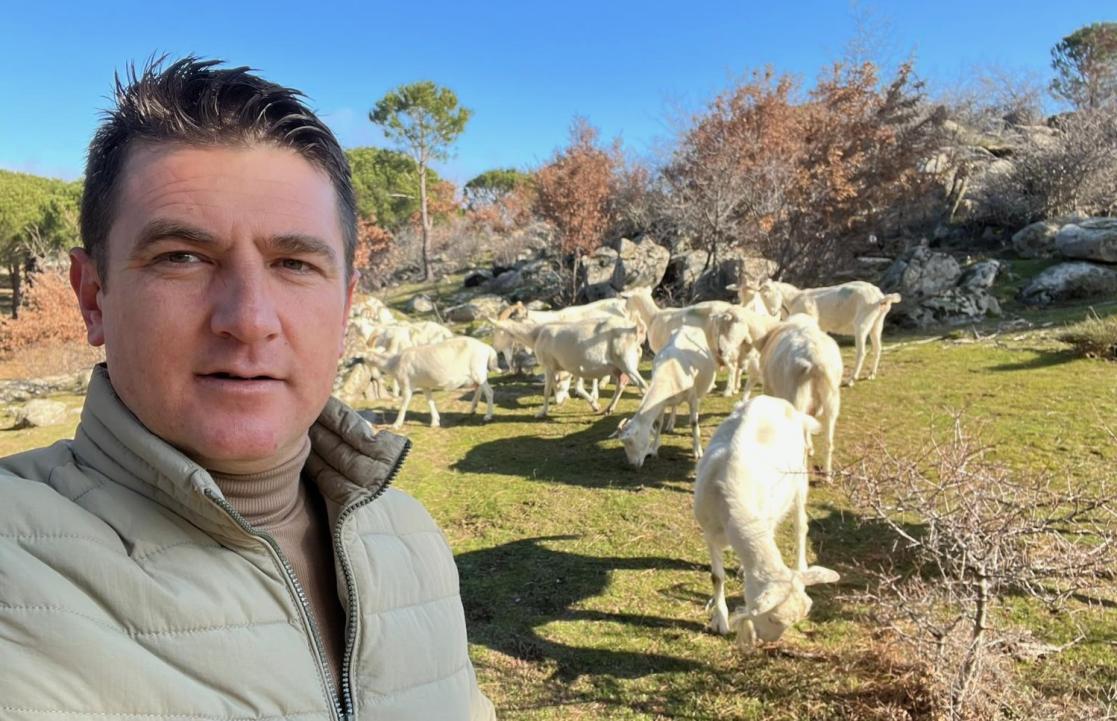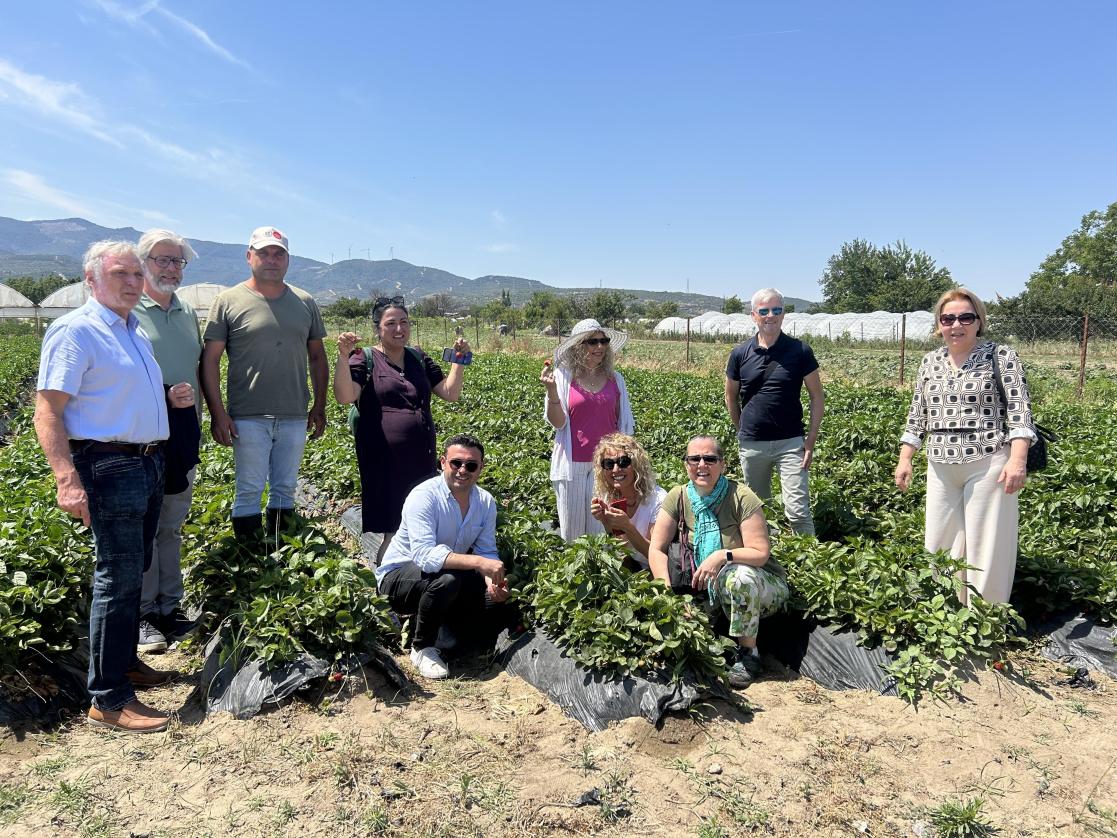A Return to the Roots: How Climate-Friendly Farming is Making İzmir’s Producers More Resilient

Returning to her hometown of Karateke, a village in the Tire district of İzmir, Gülşah embraced the responsibility of managing the family farm.

EUROPEAN UNION, 2024
 Gülşah Bayrakçı, a farmer
Gülşah Bayrakçı, a farmer
With her management experience, she soon became the director of the Karateke Irrigation Cooperative. Adapting to farm life wasn’t difficult for both her and her children, as they had already spent the pandemic period on the farm. However, as a producer, she didn't anticipate facing the impacts of the climate crisis so directly and severely.
“Our region is very hot, and as a result, we struggle with water shortages. One of the Karateke Irrigation Cooperative wells has dried up. Without water, the quality of our products has declined; the produce has become misshapen, and the olives haven’t matured. Our production capacity has ultimately decreased,” she explains.
EU-supported project
This is why the Karateke Irrigation Cooperative has joined the Climate-Friendly Farms project, launched with support from the European Union (EU) by the Buğday Association and the İzmir Cooperative Union for Village Development and Agricultural Purposes (İzmir Köy-Koop).
Yasemin Güngör, Project Coordinator at İzmir Köy-Koop, notes the project’s importance for İzmir: “The six pilot farms in the project represent the entire İzmir region through their activities.”

EUROPEAN UNION, 2024
Mustafa Kocataş, a farmer
Mustafa Kocataş, the farmer from another of the pilot farms, is also the Chairman of the Çamavlu Cooperative. He agrees with Mrs Bayrakçı that water scarcity is the most substantial consequence of the climate crisis for local farmers. “Compared to ten years ago, water levels have seriously dropped. We practice pasture-based animal husbandry, but a fifth of the water sources on our pastures have dried up. For 15 years, the yield of pine nuts in Kozak Plateau, where my village is located, has also declined.” Mr Kocataş notes that the project’s main strength is its hands-on training approach.
Enhancing the resilience of rural communities
The project aims to enhance the resilience of rural communities, protect natural resources and ecosystems, create a holistic model, and increase the agriculture and livestock sector’s adaptation capacity to climate change.
Batur Şehirlioğlu, Project Coordinator from the Buğday Association, states: “We have mobilised to disseminate climate-friendly agricultural practices and support farmers in transitioning to these methods. We aim to create models that will protect both farmers and natural ecosystems.”
The project also has a European partner: Deafal, the Italian organisation with extensive experience in climate-resilient practices, agroecology, and regenerative farming across Europe, Latin America, and Africa.

EUROPEAN UNION, 2024
Ambassador Thomas Ossowski, Head of the Delegation of the EU to Türkiye
Ambassador Thomas Ossowski, Head of the Delegation of the European Union to Türkiye, remarks: “Projects like Climate-Friendly Farms are crucial steps toward achieving a sustainable and resilient future for agriculture. This project equips farmers with the knowledge, skills, and resilience to confront the local challenges of drought and climate impacts. I’m eager to see its tangible outcomes not only for İzmir but for the entire Aegean region.”

EUROPEAN UNION, 2024
Experts from Italy and Türkiye have closely examined farmers’ lands
Providing education for farmers
Experts from Italy and Türkiye have closely examined farmers’ lands, crops, and methods to identify necessary adjustments to make production more resilient to the climate crisis. They prepared a training program, and farmers received education on efficient soil use, proper irrigation, organic fertiliser production, and saving the seeds.
Throughout the project, they will also receive guidance on agroecology, biodiversity, financial literacy related to agriculture, soil restoration, water management, vegetable cultivation, and pest control. Additionally, the project includes the development of a guide on climate-friendly practices for farmers, and training for local governments, NGOs, and cooperatives.

EUROPEAN UNION, 2024
Compost Training: The project incorporates a hands-on, practical training approach
Funded by the European Union and the Republic of Türkiye, this project is being carried out under the Climate Change Adaptation Grant Program, led by the Ministry of Environment, Urbanisation, and Climate Change, and will run for 18 months.





